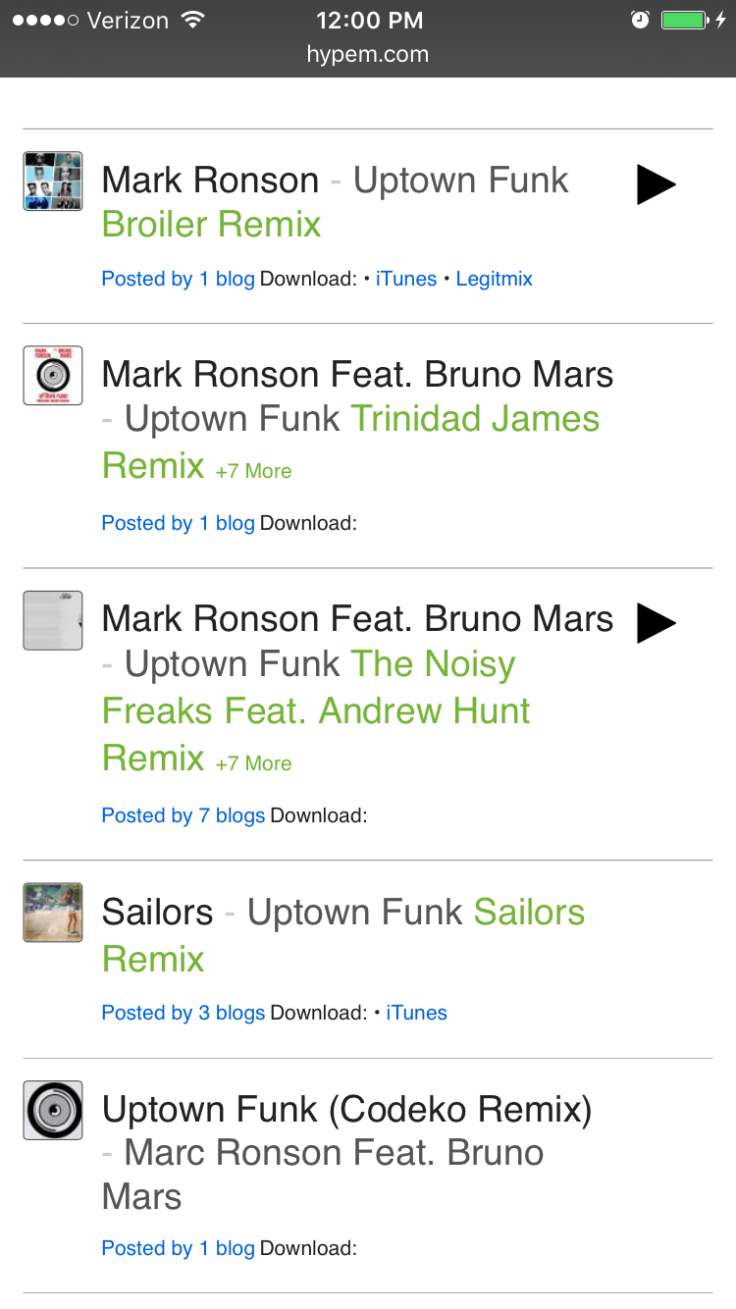Dubset’s Apple Music Deal Will Unlock ‘Hundreds Of Millions’ Of New Music Revenue

Thirty years ago, remix culture began to change the way people think about music. Today, a newly announced partnership could change the way remix culture works on the Internet. Dubset announced Tuesday that it has partnered with Apple Music to allow DJs and music producers to legally add their remixes to Apple Music, and that it will soon allow DJs to upload full DJ mixes too, a potentially transformative step toward monetizing one of the most vibrant, and most unruly corners of the music world.
“You’re talking about hundreds of millions of dollars,” Dubset CEO Stephen White told International Business Times. “This is a huge day not only for the music industry, but also for DJs across the globe. We’re very, very proud to be able to support that community.”
Thanks to the rises of hip-hop and electronic dance music, as well as the emergence of a whole new galaxy of too-readily available music software, the DJ and remix culture has flourished, becoming one of the biggest sources of music consumed worldwide. According to a report released in 2012 by EMI, an estimated 650 million people around the world listen to remixes or DJ mixes on a weekly basis.
Yet the vast majority of that work, which exists in a legal gray area, goes unmonetized. For every official remix release put out by a label, which might contain three or four licensed versions of a hit single, it’s possible to find dozens of unlicensed ones available on platforms like Soundcloud and Hype Machine.

Giving rights holders an ability to monetize the billions of hours fans spend listening to this content could be transformative. “The goal was to take these consumers out of the dark and bring them into these legal services,” White told International Business Times.
Dubset wants to do that by creating a platform that will compensate creators when a DJ uses the raw materials of already released music to create a new piece of content, like a remix or a longer DJ mix. Dubset’s partnership with Apple Music works like this: A DJ or record label uploads a sound file, containing either a DJ mix or an individual remix, to MixBank, a technology platform that runs the file’s audio through two separate filters. The first checks it against a database of three-second audio snippets sourced from Gracenote, the music metadata company. The second runs the audio through MixScan, a proprietary technology Dubset developed that goes through every track more carefully and identifies not just which songs the mix is made up of but how long each song runs for in the given mix.
Once that’s done, MixScan checks that information against a database of permissions set by creators — it has amassed licensing agreements with some 14,000 record labels, music publishers and other music rights holders — to make sure the uploaded work doesn’t violate any permissions put in place by rights holders.
For example, if a record label has blacklisted a particular song by one of its artists, any mixes that contain even a snippet of that song will be rejected from MixBank. Labels and other rights holders can set permissions by territory and even by time: If a rights holder is so inclined, it can limit the amount of time a certain song is streamed to just a few seconds.
While White feels that Dubset has the potential to bring a transformative amount of revenue to the space, it is difficult to assess the scale and pace of that transformation. White declined to share details of the royalties paid out through MixBank, only to outline the basic structure of how the service works: First, a streaming service like Apple Music pays Dubset a fee for access to the content. Next, Dubset pockets the fee, then slices up the remaining revenue and metes it out to the DJ as well as the rights holders whose work is being used. In the case of DJ mixes, at one time, the amount of time a song figured into a DJ mix played a role in the size of the royalty generated.
While debuting inside of a service that has gathered more than 11 million paying subscribers is a strong first step, a lot needs to happen for Dubset’s technology to revolutionize the industry. To begin with, White and his colleagues need to secure a great many more licenses. While the 14,000 already gathered is nothing to sneeze at, White estimates it will need to gather more than 30,000 total to cover all of the rights holders in the U.S. music landscape, and more than 50,000 to cover the rest of the world.
It also needs to sign up more services. While White is happy to debut MixBank with Apple — “They’ve been a great partner,” he said — he hopes to one day have his technology in place on every streaming and download service available around the world.
He also knows he needs to add more services to entice the rest of the rights-holding community to sign up. Many of them have been leery of signing up without evidence that Dubset’s technology will get them paid.
“It’s been a chicken and egg problem,” White said. “The content owners want to see there’s a distribution partnership.
“Now that we’ve got this deal with Apple in place, those efforts are moving much faster,” he said.
© Copyright IBTimes 2025. All rights reserved.




















